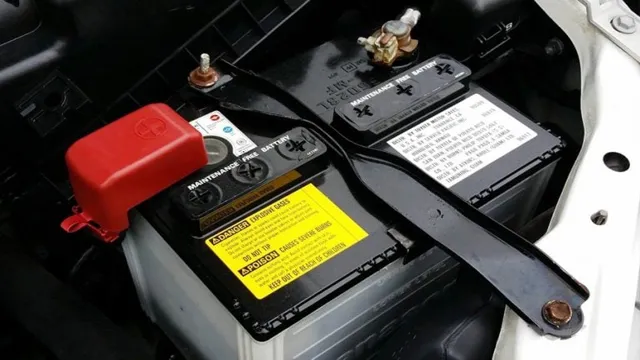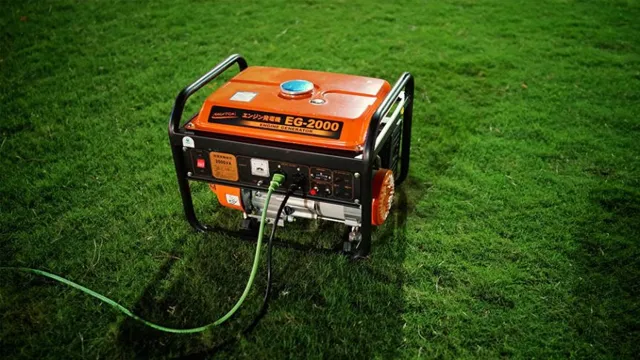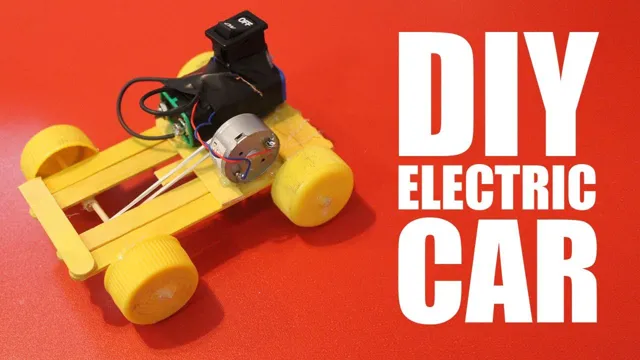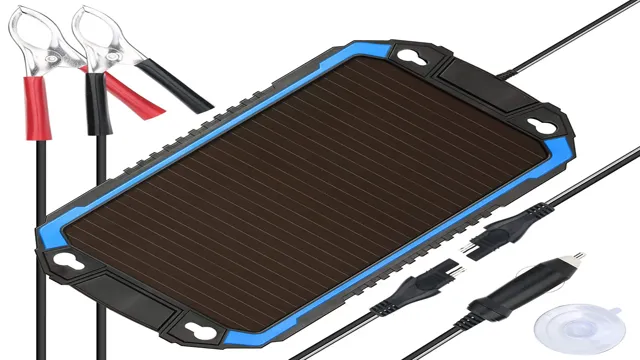Stay Warm on the Go: Can You Power an Electric Heater with Your Car Battery?
When temperatures plummet during winter months, and your car’s heating system just won’t cut it, it can be tempting to rely on an electric heater to stay warm. However, running an electric heater off your car battery isn’t as simple as plugging it in. There are several factors to consider before embarking on this endeavor, such as the power output of your car battery, the wattage of the heater, and the length of time you plan on running it.
In this quick guide, we’ll explore the essential information you need to know about running an electric heater off your car battery. So, buckle up and let’s dive in!
Can It Be Done?
The short answer is: Yes, you can run an electric heater off a car battery. However, it’s important to understand the limitations and potential risks associated with doing so. Most car batteries are designed for short-term use, and running a heater off a car battery can drain it pretty quickly, especially if your car isn’t running.
In addition to draining the battery, using an electric heater also puts a strain on the car’s alternator and electrical system, which can lead to damage over time. It’s also worth noting that some heaters may draw too much power from the battery and could potentially overload the system, so it’s important to check the specifications and make sure you’re not exceeding the battery’s capacity. If you’re planning to use an electric heater in your car, it’s a good idea to choose a low-wattage model that’s designed for use with a car battery or invest in a separate power source, such as a portable battery pack or generator.
That way, you can stay warm without risking damage to your car’s battery or electrical system. Keep in mind that while it’s possible to run an electric heater off a car battery, it’s not always the safest or most efficient option, so be sure to consider all your options and choose the one that’s best for your specific needs.
Understanding Car Battery Power
Understanding car battery power can be a daunting task for many, but it is crucial to ensure that your vehicle is running smoothly. The battery is the heart of your car’s electrical system, providing power to the starter motor, lights, and other critical components. The most important factor to remember is that a car battery’s power is measured in cold cranking amps (CCA).
This rating indicates the battery’s ability to start your car in cold weather conditions. It’s essential to choose the right battery with the appropriate CCA rating for your vehicle to ensure that it starts promptly. Additionally, it’s important to check the battery’s voltage regularly and keep it charged to ensure maximum performance.
By understanding car battery power, you can maintain your vehicle’s electrical system and keep it running smoothly.

Electric Heater Wattage Requirements
Electric heaters are a great way to heat your home, but figuring out the wattage requirements can be a challenge. Fortunately, it is possible to determine the wattage you need for your electric heater. The first step is to determine the square footage of the space you want to heat.
Once you know the square footage, you can calculate the wattage required using a formula that takes into account the size of the space and the insulation of your home. While electric heaters can be pricey, a higher wattage heater may be necessary to fully heat a large area. So, can it be done? Yes, it can! Just make sure to do your research and calculate the proper wattage to ensure maximum efficiency and comfort.
Safety Considerations
If you’re wondering whether it’s safe to run an electric heater off your car battery, the answer is technically yes, but it’s not recommended. Car batteries are designed to provide power to start the engine, not to run auxiliary devices continuously. Running an electric heater for an extended period can drain the battery quickly and cause damage to the battery and your car’s electrical system.
In addition to the risk of battery failure, running an electric heater in an enclosed space can be dangerous due to the risk of carbon monoxide poisoning. To avoid any potential safety hazards, it’s best to use alternative heating sources, such as a portable propane or kerosene heater, that won’t put undue strain on your car’s battery or risk your health. Remember to always prioritize safety when it comes to using heating devices in your vehicle.
Potential Risks
When it comes to utilizing technology, it’s important to consider safety. With increased integration of smart home devices, concerns arise regarding privacy and security. Hackers may attempt to gain access to systems, putting personal information at risk.
Additionally, there is always a potential risk of malfunction or electrical fire. Proper installation and maintenance of devices can mitigate these risks, but it’s important to stay aware and vigilant. It’s also good to keep in mind the possibility of physical harm, especially when it comes to AI-powered robots.
As technology advances, safety considerations remain a priority to ensure a smooth and secure experience.
Precautions to Take
When engaging in any activity that has potential dangers, safety precautions must always be taken seriously. This is especially true when it comes to high-risk sports like rock climbing or extreme skiing. Before starting, it is crucial to have the correct safety equipment and learn how to use it properly.
Even with safety gear, make sure to check the equipment for wear and tear, and replace it when necessary. Take note of any weather advisories or warnings, and avoid venturing out during extreme weather conditions. Also, make sure to inform someone about the location, duration, and specific details of your activity, so they can alert emergency services if necessary.
Finally, and perhaps most importantly, ensure that you are physically and mentally prepared for the activity. Pushing yourself too hard can result in poor decision-making and increased chances of injury. By taking these safety considerations seriously, you can still enjoy high-risk sports while minimizing the risks.
Alternative Heating Options
When considering alternative heating options for your home, it’s important to also consider safety. One common alternative to traditional heating systems is a wood stove or fireplace. While these options may be cozy and charming, they also come with the risk of fire hazards.
It’s important to ensure that your chimney is clean and properly installed, and to never leave a fire unattended. Another option is space heaters, which can be convenient for heating specific areas quickly. However, it’s important to keep them away from flammable objects and to never leave them turned on while unattended.
Safety should always be a top priority when exploring alternative heating options for your home.
Steps to Run Electric Heater on Car Battery
Many people wonder whether they can run an electric heater off their car battery. The answer is yes, it is possible, but there are some important steps that need to be followed to ensure that the process is safe and effective. The first step is to choose a heater that is designed to run on DC power, as this will ensure that it can be powered from a car battery without any issues.
It’s important to also check the power consumption of the heater and ensure that it is within the limits of your car battery. Once you have the right heater, you need to connect it to your car’s battery using appropriate cables and fuses. Finally, you will need to monitor the battery power and ensure that it doesn’t get too low, as this could damage the battery or even lead to a safety issue.
By following these steps, you can safely and effectively run an electric heater off your car battery for a warm and cozy drive.
Checking Battery Health
If you’re planning to run an electric heater on your car battery, there are a few things you should keep in mind. First of all, it’s important to check the health of your battery regularly. If your battery is weak or has outlived its usefulness, you might run into problems when trying to power up your electric heater.
To check the battery, use a multimeter to measure the voltage. You should see a reading of at least 14 volts to ensure that the battery is in good condition.
If the reading is lower, you might want to consider replacing your battery before attempting to use an electric heater. It’s also a good idea to make sure your alternator is functioning as it should. A bad alternator can cause your battery to drain quickly, leaving you without any power to run your electric heater.
By keeping these things in mind, you can ensure that you have a reliable source of power to keep you warm on those cold winter mornings.
Calculating Battery Capacity
Electric Heater on Car Battery Using an electric heater on a car battery can be tricky. Calculating the battery capacity is the first step to ensure that you have enough power to run the heater without damaging the battery or reducing its lifespan. The capacity of your battery can be determined by its Ampere-hour (Ah) rating, which is the amount of current that it can deliver for one hour.
For example, a 100Ah battery can supply 100 amps for an hour or 50 amps for two hours, and so on. Once you know the Ah rating of your battery, you need to calculate how much power the heater will consume. This can be done by checking the manufacturer’s specifications on the heater or using a wattage meter.
Let’s say your heater consumes 100 watts, which is equivalent to 33 amps at 12 volts. To run the heater for two hours, you will need a battery with a capacity of at least 1
66 Ah (33 x 2). It’s essential to have a buffer of at least 20% in case of power surges or fluctuations.
Therefore, you should choose a battery with a minimum capacity of 20 Ah. Keep in mind that running a car heater on a battery will drain its power quickly, especially if you use it for extended periods. It’s best to use the heater only when necessary and turn it off when you don’t need it.
Moreover, charging the battery regularly will prolong its lifespan and prevent it from becoming damaged. In conclusion, running an electric heater on a car battery requires careful consideration of battery capacity and power consumption. With the right battery and mindful usage, you can enjoy the warmth of your heater on cold days without causing any damage to your battery.
Conclusion
Although technically possible to run an electric heater off a car battery, it’s not recommended unless you want to turn your car into a toasty oven and your battery into a lifeless brick. But if you’re in a dire situation and need some warmth, just remember to use it sparingly and have a backup plan in case your battery decides to give up the ghost.”
FAQs
What is the power requirement for running an electric heater off a car battery?
The power requirement for an electric heater varies based on its wattage rating. It is important to check your car battery’s capacity and your heater’s power requirements to ensure they are compatible.
Can I run an electric heater continuously off a car battery without damaging it?
It is not recommended to run an electric heater continuously off a car battery as it can drain the battery quickly and damage it. It is better to use a portable power bank or a dedicated car heater to avoid battery damage.
How long can I run an electric heater off a car battery?
The duration of running an electric heater off a car battery depends on the battery capacity and the heater’s power rating. On average, a car battery can power a 1500-watt heater for about 30 to 40 minutes continuously before it needs recharging.
Can a car alternator charge the battery while running an electric heater?
The car’s alternator can charge the battery while running an electric heater, but it is important to ensure that the alternator’s output is sufficient to handle the extra load. It is recommended to keep an eye on the battery’s voltage and charge status while using a heater off a car battery.





